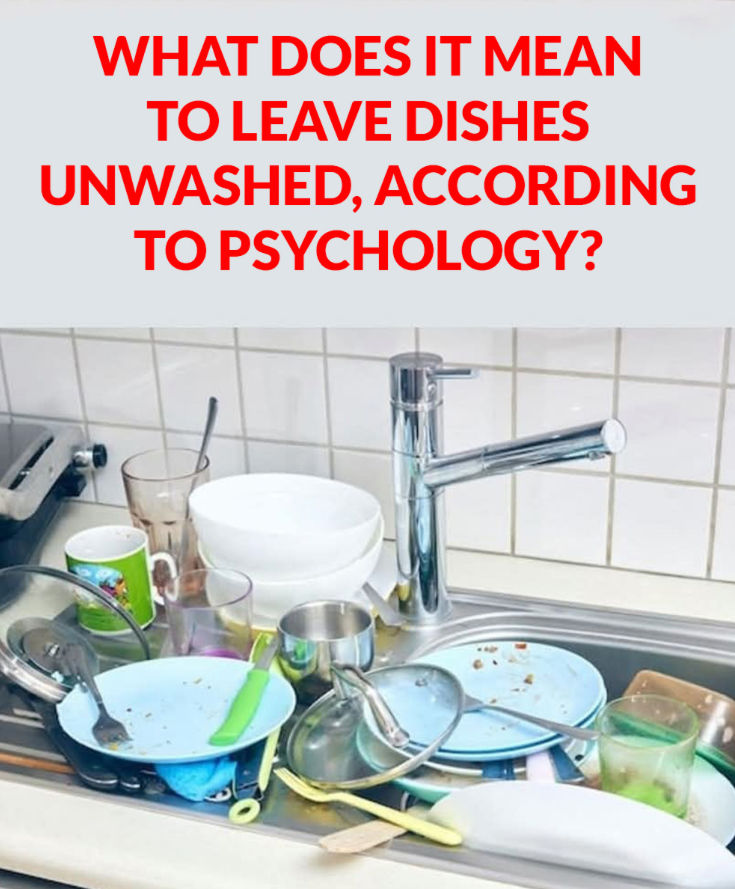
The Psychological Significance of Leaving Dirty Dishes and Why They Shouldn’t Pile Up
The state of our home can often reflect our mental state, and one of the most telling household tasks—washing dishes—can provide insight into our psychology, habits, and emotional well-being.
Have you ever wondered why some people leave dirty dishes in the sink? This behavior might be more than just laziness or forgetfulness—it can be a reflection of deeper psychological factors. In this article, we explore the underlying meaning behind this habit and why it’s essential to keep it under control.
The Psychological Meaning of Dirty Dishes
Leaving dishes unwashed can stem from several psychological reasons, including:
Stress and Exhaustion
Many people leave dirty dishes because they feel physically or mentally drained. After a busy day or an overwhelming load of responsibilities, even small household tasks like washing dishes can feel like a daunting chore.
Procrastination and Disorganization
Procrastination isn’t limited to work or school—it can extend to everyday tasks like washing dishes. For some, the chore might feel trivial or low-priority, which can indicate a broader tendency to delay or avoid tasks in other areas of life.
Emotional Health and Mental Well-being
Clutter, including unwashed dishes, can be a sign of emotional struggles such as depression or anxiety. When someone is going through a tough time, they might neglect household chores, which can reflect their internal emotional state.
Lack of Routine and Structure
Leaving dishes unwashed may also result from a lack of organized habits. Individuals without a structured daily routine might struggle to maintain order in their home, allowing clutter to accumulate.
Why You Shouldn’t Let Dishes Pile Up
Regardless of the underlying cause, leaving dirty dishes to accumulate can have several negative effects on both physical and mental health. Here are some reasons to avoid this habit:
Preventing Bacteria and Unpleasant Odors
Leftover food on dishes is a prime breeding ground for bacteria and can attract pests like flies and cockroaches. Additionally, the unpleasant smell of rotting food can spread throughout the kitchen and into other parts of the home.
Reducing Mental and Visual Stress
A cluttered environment can lead to feelings of chaos and anxiety. The sight of dirty dishes can create mental stress, making you feel overwhelmed and guilty, which can also affect your mood and productivity.
Fostering Discipline and Self-Care
Washing dishes immediately after eating may seem like a simple task, but it helps promote discipline and self-care. Keeping the kitchen clean encourages responsible habits and supports a sense of personal well-being.
Improving Coexistence with Others
In shared living spaces, a pile of dirty dishes can lead to conflict between roommates or family members. By maintaining a tidy kitchen, you foster better communication and a more harmonious living environment.
Conclusion
Washing dishes is more than just a household chore—it reflects our personal discipline, mental state, and everyday habits. While occasionally leaving dirty dishes is not a major issue, allowing them to pile up can negatively impact both health and emotional well-being, as well as the harmony in your home.
Making a conscious effort to keep your kitchen clean can have a positive impact on your mood, your sense of control over daily tasks, and the overall atmosphere of your living space. How do you manage this task in your daily life?





